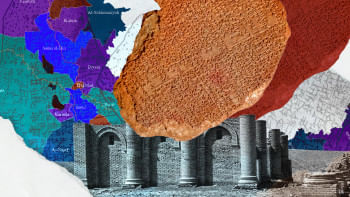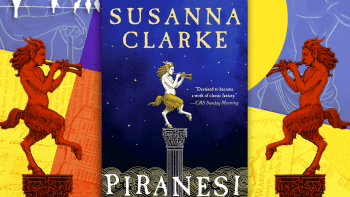Language can be the ultimate colonial weapon

Despite the time we have spent free of the British Raj and the decades of being independent, the impact of colonialism is deeply embedded into Bangladesh's national psyche. From our continued glorification of the English language to our youth's hidden obsession with the West, there are very few aspects of our culture that have not been touched, at least to some degree, by the centuries we spent under the control of Europe.
Perhaps this is why I related so much to RF Kuang's Babel. Published in August 2022, this dark academia tale is set in the 1830s. The world of Babel reflects our past in nearly every but one very important way: silverwork. In the novel, Britain's overwhelming colonial supremacy is powered using bars of silver which are tied to language. Pilfered from colonies across the world, much like real-life resources seized from colonised countries, these bars are etched with words in multiple languages which are near-synonyms. Using the power of meanings "lost in translation", these enchanted silver bars have the power to increase agriculture, improve infrastructure and efficiency in war, enhance medicine, and much more. Because the silver is taken from the colonies, Britain is all but dominating the world by controlling its supply, the majority of which is centralised in the fictional Royal Institute of Translation at Oxford University—nicknamed Babel.
Robin Swift, our protagonist, is plucked as a child from his impoverished homeland of Canton, China by his white father, a member of the prestigious faculty at Babel. Gifted with a talent for languages, Robin is brought to London and is, eventually, accepted into Babel as a student. Robin's life at Oxford is both blissful and terrifying. Babel itself is enchanting, almost mythical in its beauty and power, cocooned within the heart of Oxford, but Robin is half-Chinese, making him an easy target for endless, varied and deeply-ingrained hate. Coupled with the fact that his three best friends are, alternatively, Indian, Muslim, Black and female, the four both excel in and struggle to adjust to life so far removed from their homes. The cosy comfort of university life is destroyed, however, when the four are brought face to face with the reality of what their beloved Babel truly does—allowing Britain to forcefully set forth a disastrous war against China, winning which would all but cement British dominance in the East. This is to be done primarily through a powerful influx of opium into China, slowly disabling its population and allowing Britain to overtake China's silver reserves. This is the setting that renders Kuang's historical fantasy novel much more "historical" than "fantasy".
Kuang seems to be a writer with unflinching devotion to historical truth, no matter how harsh. Having emigrated from China to the US as a child, she went on to earn an MPhil in Chinese Studies from Cambridge and an MSc in Contemporary Chinese Studies from Oxford, and she is now working on a PhD in East Asian Languages and Literatures at Yale.
In Babel, we are front-row witnesses to her love of language, seen in her lyrical, almost rhythmic descriptions of Oxford and Robin's rise and fall there. Babel is a study in just how powerful a tool this language can be, both for good and for terrible evil. Even today, for example, applying to study or work abroad means sitting for English language proficiency exams which, hilariously, have expiration dates—a combination of the merging of economic control and neo-colonialism.
The name of the novel, as well as the fictional institute in the book, is a powerful indicator of this legacy. The story of the tower of Babel, summarised, is this: long after the Great Flood, the descendents of Noah populated the world and spoke a single language. However, they grew arrogant and thought to challenge God by building a great tower, named Babel, high enough to reach the heavens. In anger, God introduced a variety of languages, leading to the downfall of Babel, and forcing the people to disperse and spread across the world. Kuang's Babel begins with much the same premise: the British are attempting to conquer using a combination of silver and language, and we end the book witnessing such stunning violence that the fate of the Empire itself is left uncertain. Robin and his allies may have contributed to this, but it is important to remember that these people were simply products of the Empire. Every tyrant creates the means of their own destruction, and Babel is an easy example of this.
Despite these heavy themes, Babel remains inherently readable. It is quick to attract the reader's attention and then hold it captive, making it a very difficult book to put down. The length of the story—over five hundred pages!—can be intimidating for most people, and understandably so. However, the words flow, much as silver flows into Britain in the tale, and we are quickly introduced to characters that you will either love, or love to hate. This is the type of novel you read until you are startled by birds singing at sunrise—where did the night go?
Sarazeen Saif Ahana is an adjunct member of the faculty at Independent University, Bangladesh where she teaches English and encourages her students to fight colonialism.

 For all latest news, follow The Daily Star's Google News channel.
For all latest news, follow The Daily Star's Google News channel. 









Comments